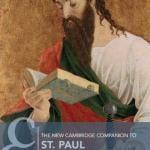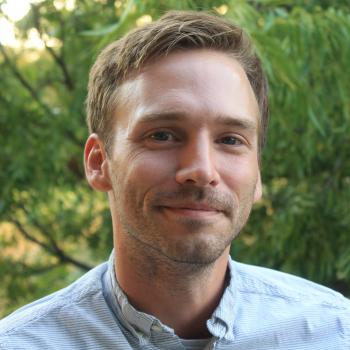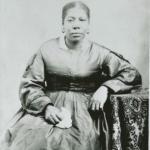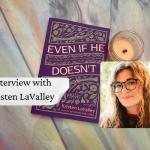We continue with the second profile in our new series: The Editors behind the Great Books in New Testament studies. I am pleased to introduce you to Dr. James Ernest (Eerdmans). We became friends while he was an acquisitions editor at Baker. He brought in my book Beginner’s Guide to New Testament Studies just before he moved to Eerdmans. He is sharp, thoughtful, and has a long and tenured history in the publishing world. In this interview, James is witty, informative, and brutally honest. Great stuff for aspiring authors and folks like me who should know better. (Eerdmans is publishing a book honoring the career of Michael Gorman, which I co-edited; learn more about Cruciform Scripture here).
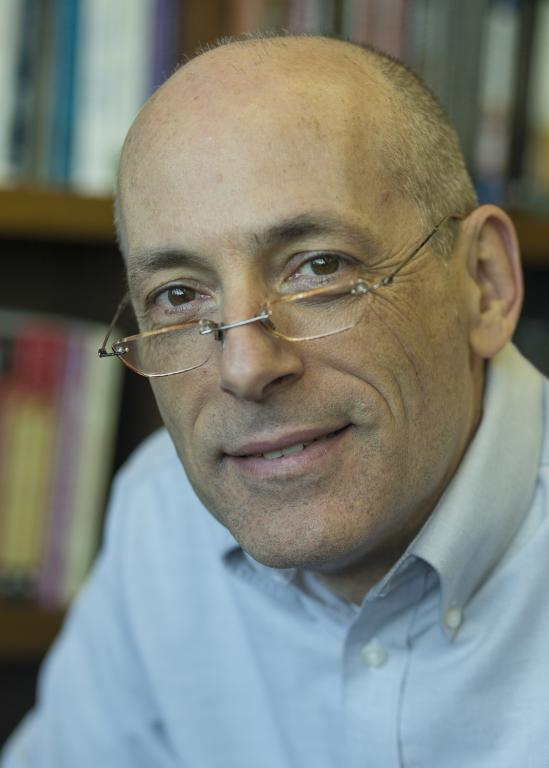
1) Tell us about yourself and your background, James.
Thanks for asking, Nijay. You’re so good at making these kinds of conversations happen!
I was born and raised in Virginia—fairly typical conservative evangelical upbringing in a Presbyterian church that became a founding congregation in the PCA. (Little-known fact: Tim Keller’s first church was in my hometown, daughter church to my own congregation, and when I was in high school I used to bail him out sometimes by playing piano or organ when their own musician was unavailable.) Went to Wheaton College and Gordon-Conwell Seminary, thinking that I might find a role in theological education in Africa. (Later realized that African seminarians probably didn’t need the white boy from Virginia to help them learn theology.) I double-majored in ancient languages (Greek, Hebrew, Latin) at Wheaton, then was offered a Greek-teaching fellowship at Gordon-Conwell. That, together with the fact that Gordon Fee was there, sealed my decision to go to GCTS.
From there I went to a PhD program in classical studies at Boston University. Two years later, when I took my MA exams, I passed at the PhD level and was encouraged to choose an adviser and get on with a dissertation, but I chose to take a couple of years off. I finished the MDiv by taking clinical pastoral education for a summer, worked for an educational publisher in Cambridge, got married, and pursued the ordination process in the PCUSA (another long story—I was certified ready for ordination on receipt of call, but went back to school instead). After my wife got a church in New Hampshire, I quit my Cambridge job and worked full-time for a good number of months translating the Spicq Theological Lexicon of the New Testament. Then—in fall 1990, when our first child was born—I started a PhD in history of Christian life and thought (effectively majoring in patristics and minoring in New Testament, but with significant course work in theology and ethics) in the Boston College–Andover Newton Joint Doctoral Program.
After two years of courses, a year or two of teaching, a couple of years of part-time grunt work for Jaroslav Pelikan on his big creeds project (he was visiting prof. at BC for a year) and for a medievalist working on 13th-century Latin texts, I burrowed deeply into my dissertation on uses of scripture in the writings of Athanasius of Alexandria.
Wow, talk about a long and winding resume! Few editors I know aspired to be in publishing. They sort of wandered into it and ended up enjoying it. How did you become an editor? What do you enjoy about it?
Right, most of us had never even been aware that this sort of career even existed! And it kind of doesn’t. There are so few positions like mine, compared to the job world in general, that it would be unwise for lots of college students or grad students to be thinking, “I want to be that.” I think it’s a career you have to fall into, unless you get interested in book publishing in general and would be happy to work for a university press or a general-trade press. If you have your heart set on being editor-in-chief or editorial director, or even acquisitions editor, for one of the handful of major religious-academic programs in the US, you’re aiming at a tiny bulls-eye on a windy day.
In my case, I happened to go to seminary with some people who later landed a couple of miles down the road in the offices of Hendrickson Publishers. David Townsley had been a year or two ahead of me as a Greek teaching fellow at Gordon-Conwell, and Patrick Alexander graded my papers in a couple of my Gordon Fee courses. Both were at Hendrickson before 1996. Dave T. had invited me several times to join him at Hendrickson, and I had kept putting him off to do another degree. So in 1996, when my wife had been pastoring for seven or eight years and wanted to take some time off with our two small children, and my dissertation wasn’t even half done, I needed gainful employment again. Who ya gonna call? I called Dave Townsley. Right around the same time, for similar reasons, John Kutsko (then ABD at Harvard, now executive director of SBL) called Patrick Alexander. So we both started working for Hendrickson publishers at the same time. Very gutsy of Dave, Patrick, and Stephen Hendrickson to take on two newbies at the same time! But along with others who were already on staff at Hendrickson, we had a rip-roaring good time for several years. One of our colleagues for a brief time during that sojourn was one Nijay K. Gupta! [NKG: This is true!]
I worked seven years for Hendrickson, then twelve years for Baker Academic & Brazos Press, and then in 2015 became vice president and editor-in-chief at Wm. B. Eerdmans.
What do I enjoy or find satisfying? I had wanted to be involved in missions work. There was no way you could be raised where I was and not want that! Just getting any job was never going to cut it. At a deep level, I had been formed to need to have a role in the missio dei. That’s what publishing has always been for me and still is. My ideas about the scope of that mission have evolved and broadened, but that’s still the core. I get to help highly gifted and highly educated people conceive and produce books that will serve the work of the church and the church-related academy. I can’t imagine doing anything else.
What are some things that stand out to you in a book conversation with an author or a book proposal that grab your interest?
At Eerdmans, we publish scholarly books (i.e., books for professors and doctoral students), academic books (for master’s and bachelor’s students and their profs), professional books (for people engaged in or training for all kinds of ministry work), and trade books (for laypeople). I look for different kinds of authors for those books.
For scholarly books, I listen for absorption in and dedication to the scholarship. I listen for signs that this author knows other great scholars and their work, takes them seriously, isn’t looking to be seen as a big deal and doesn’t have an ax to grind but has some unusual ability to find and assess the data (which usually but not always means finding and astutely reading texts and drawing logical conclusions from that evidence).
For academic books, I’m still interested in signs of dedication to the material, but I also really want to hear things that tell me: this person knows how to teach, knows how to communicate effectively to students at the level she or he is targeting, and has the humility to serve the student-reader.
For professional books, again you want the person to know the material, but since ministry means mediating the God-world relationship, I want to see some sign of serious investment in putting faith to work on the ground, together with evidence that this would-be author has a track record in communicating clearly and effectively with pastors or seminarians or both.
For trade books, the way would-be authors express themselves in conversation already tells you something about their interest and ability in connecting with an ordinary reader in a gripping way. But beyond interest and ability, we normally need a proven track record. Lots of professors would like to address a broad readership, and could, but few of them are people that substantial numbers of book-buying people are already hoping to hear from because of their copious and effective speaking, blogging, popular publishing, etc.—and that’s usually (not always) a proposal-killing lack.
What are your book proposal pet peeves? And what are common, but correctable mistakes (more broadly) that authors make when trying to pitch their book idea?
Top Peeve #2: Some would-be authors have maybe read something about sales that makes them think the key is to grab my attention, look me in the eye, hold my attention through a long, detailed, and breathless spiel about their book, and then expect a positive response.
That ain’t how it works. Most acquisitions editors are introverts, and better readers than listeners, and unless you hit a topic on which they happen to feel they are completely up to date, you might be talking over their head or otherwise baffling and annoying them. They’re going to need to think about it, probably talk about it with some colleagues, and get back to you later. And they aren’t going to remember all the details of an oral spiel—they’ll just remember that it felt like a mugging.
I appreciate a genuine human interaction. I don’t want to be treated as though I am a publishing god who, if beseeched with sufficiently convincing earnestness by a sufficiently meritorious suppliant, can and should grant your wish. I’m not that powerful. We need to understand each other. I need to understand what’s motivating you, who you want to reach, something about the message you want to reach them with, and why you think you might be able to reach them. I want you to understand that I represent readers who buy books from my company, and I want you to help me see whether and how you have something on offer that will serve my readers.
Which brings me to Top Peeve #1: The person who wants to publish a book but does not have the slightest clue of who the readers are, why those readers need this book, how many of them there are, and where they are located. And, if you find that unimaginable, I assure you that it is not rare. You could call this: self-centered (sometimes solipsistic) authorship.
Talk about one or two books that you acquired or edited that you are especially proud of and why.
Oh, this is a hard question. “Hey, dad, which of your babies do you love best?” Well, I have been privileged to work with many wonderful authors and books at three good publishing houses over the last quarter-century, and I don’t want to slight any of them. I hope I may be forgiven for naming as one favorite the diglot third edition of the Apostolic Fathers that I did with Mike Holmes. What can I say—I’m a Greek nerd and patristics devotee. We took a rather clunky preexisting product and, with Mike’s painstaking revisions to the translation (in places the text) and our complete revamping of the design and packaging, turned it into a premier primary-text diglot edition. Poor Mike can probably still tell you many emails he had from me. Dwight Baker even let me put a ribbon in it for the first printing. That was fifteen years ago.
To take a very different current example: I’ve known Frederick Bauerschmidt for years as a consummate scholar of medieval theology with special expertise in Thomas Aquinas. Last year he approached us about a book growing out of his teaching of undergraduates. Fritz is mindful of the ways in which Christianity is an unknown or even despised quantity among so many younger people these days, and he wanted to write a book that would present the truth of God as love. It’s not an easy thing for a high-powered historical theologian to write a book for laypeople—but Fritz killed it. It’s a beautiful book. As I write this, it’s just releasing, with a strong number of backorders. We are expecting good things to come of it.
There are many good pieces of scholarship by biblical scholars, but we are not necessarily good at the art of writing. If you were to help an author improve their writing and communication skills, what would you recommend?
Oh, I think reading is important. Scholars who aren’t constantly feeding the poetic parts of their souls with good literature, including recent fiction from all over the world, are going to have a harder time communicating well. I think it’s also a good idea to read books in biblical studies that are generally recognized as being really well written. I could name Jon Levenson and Robert Wilken as authors who know how to present solid learning in an unpretentious, lucid style. I’ve also had authors tell me how much their clarity was helped by criticisms they received from a spouse or student or good friend. Doesn’t hurt to read a book about writing now and then. Not long ago I read Dreyer’s English and thought everything in it was right. But that’s mostly remedial—avoiding or fixing mistakes. Some regions of academia encourage verbosity, obscurity, and needless syntactic complexity. Read our Marilyn McEntyre books and our Sam Wells books. Read the letter to Simon Grynaeus that serves as a preface to John Calvin’s Romans commentary, and repent in dust and ashes. You can’t write well unless you’re willing to empty yourself and take the form of a servant to your readers. Let’s stipulate that you know a great deal. Otherwise why should anyone spend their time and money on your book? But now clothe (or unclothe?) yourself with humility and simplicity. Then write.
Humility really helps also. Editors encounter very few authors whose writing can’t be improved, and they are never the ones who are quite sure their writing can’t be improved. If an editor says your sentence needs clarification, trust the editor. If you don’t like the editor’s attempt at improving it, don’t insist on reverting to your original wording. Propose a third way. You’ll have a better book for it.
Explain how you define and interpret “success” in your industry?
Fulfilling your calling without losing your shirt.
I say that a little bit in jest, but only a little. I’ve worked for three academic religious publishing organizations, and while they varied somewhat in aims and ethos, none of them has had a commercial heart. If you’re not making a viable margin, then something is wrong either with your business practices or with the world you’re trying to serve or with your understanding of what that world needs. So I’m not saying there’s not a financial component to success. But I see “the numbers” not as an ultimate goal but as indicator of other things that are more important: are you serving your readers well, and are you disciplining your own work well?
I would say that for someone in the role of acquisitions editor, success depends on collaborating with authors to produce books whose readers will say: “Thank you, dear author. You looked me right in the eye and told me things that I needed to know,” and whose authors will say: “Thank you, dear editor. You understood what I was trying to do and helped me do it better.”
Can you give some thoughts and predictions about how publishing in biblical studies can and/or should change in the next 10 years?
Well, we all know the sky is falling, right? The moon will turn to blood and a third of the stars will crash in flames into all the remaining bookstores and half the remaining colleges and seminaries.
So it’s more important than ever for publishers to discern who really has a stake in biblical studies and will continue writing, teaching, and studying, and why. At the high end, academic monographs will be academic monographs. But books that are aiming to serve graduate and undergraduate students and people who are studying scripture in an ongoing way to inform and shape life and ministry will need to adapt to the changing circumstances and identities of those readers. That’s hard to predict. Just have to stay tuned in.
If you were wanting to invite “fresh talent” to publish with your press, what is your pitch (right here and right now!)? How do you express your press’s identity and purpose (don’t just recite it from a website) and how do you want to shape biblical studies?
Wm. B. Eerdmans has a storied history. We’ve been publishing well over a century and have published some of the finest authors and books in English during this whole period not only in biblical studies but also in early Judaism, theology, ethics, history of Christianity, religion and culture, ministry, and other related (and sometimes unrelated) areas. That history attracts authors who want to publish books of enduring value. Our current president, Anita Eerdmans, is the third in the company’s 108-year history. That fact bespeaks a certain stability in the midst of change.
As SBL and AAR members will know, there can be strong antipathies between scholars who study the Bible using different methodologies and with different aims. Those who are pursuing historical investigation disinterestedly (at least avowedly), reading the Bible as a diverse and sometimes discordant collection of texts, and those who (avowedly or not) read the Bible as an unified authoritative guide for Christian life and thought are inhabiting different discourses and sometimes seem to be living on different planets.
Our various commentary series have statements of purpose that make their aims clear. Service to the church and the church-related academy has always been and remains at the core of Eerdmans biblical-studies publishing. Reformed, evangelical, mainline Protestant, Catholic, Orthodox, and other. Eerdmans has large and loyal followings in these worlds, and we are loyal to them.
We also have many books (and at least one commentary series) that simply pursue scholarship without reference to any religious commitment or ecclesial agenda.
So at Eerdmans we publish books for various constituencies and by diverse authors. The various discourses coexist well because everyone is clear about what they are doing.
Our program is not a vacuum cleaner that wants to capture and publish every proposal out there. We want to publish a selection of the best books within each discourse in which we have readers. If you want to publish the best book you can in biblical studies, you should consider speaking with us. We end up regretfully declining some attractive proposals because our emphasis on quality over quantity imposes certain limits. We do not try to compete with the university presses for all the arcane monographs. We publish books—including carefully selected high-level monographs—that we think will make a valuable contribution.
Since we’re talking about biblical studies: our Old Testament and New Testament editors, Andrew Knapp and Trevor Thompson, are top-shelf scholars in their own right and also very good editors. They serve authors well by helping them improve their manuscripts. Our project editors and the people whose copyediting and proofreading they supervise are consummate professionals, as are the colleagues in charge of design and production. We have really bright and energetic colleagues in marketing, and our sales colleagues have been doing stellar work in tuning up the effectiveness of our sales channels and distribution and fulfillment capabilities, domestic and international.
I am not aware of another press that has a more talented staff right now. Our history and our current staff are the best reasons for publishing with us


